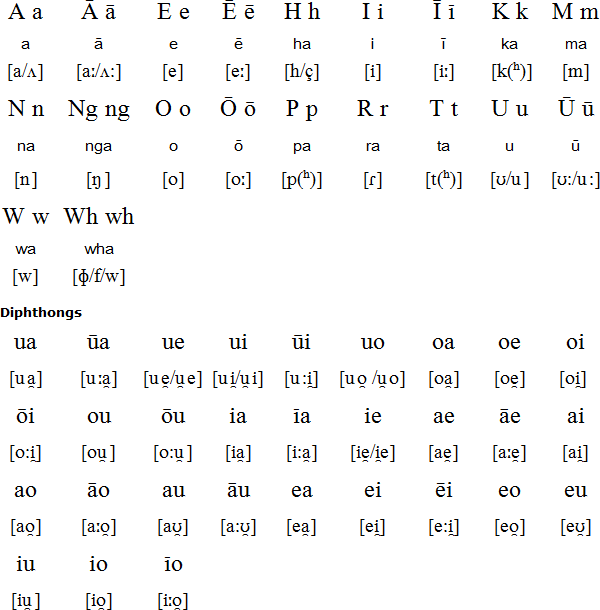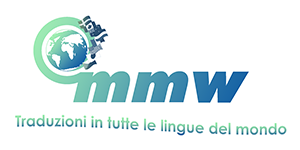Māori (Te Reo Māori)
Māori is an Austronesian language spoken in New Zealand, or
Aotearoa (‘The Land of the Long White Cloud’), and the Cook Islands
by about 136,000 people. It was brought to New Zealand by Polynesian people,
probably from Taihiti or thereabouts in about 800 AD, or possibly earlier.
Māori is most closely related to Tahitian,
which is spoken in Tahiti and the Society Islands, and Rarotongan, which
is spoken in the southern Cook Islands.
Before 1840, Māori was the predominant language of New Zealand. It
was extensively used in social, religious, commercial and political interactions
among Māori, and between Māori and Pākehā (Whites).
Māori was also the language of instruction in the schools set up by
missionaries.
The first printed Māori book was Thomas Kendall’s 1815 reader
called E korao no New Zealand (Talk from New Zealand). The
first Māori language newspaper was published in 1842. By 1900
more than a thousand publications in Māori had appeared.
In 1867 the Native Schools Act decreed that English should be the only
language used in the education of Māori children, which lead to many
Māori children being punished for speaking their own language.
From the 1940s onwards, the Māori began migrating to urban areas
where they were living amongst the English-speaking Pākehā.
As a result, many of them chose to speak English and to raise their children
as English speakers.
In the 1970s, Māori urban groups began to be concerned about the decline
of the Māori language and set up various schemes and organisations to promote
the language, including bilingual and Māori medium schools, radio stations
and a TV channel.
Māori alphabet

Māori diphthongs

Notes
- Vowels can be long or short. Long vowels are written with a macron (ā,
ē, ī, ō, ū). If no macron is available, a diaresis
or circumflex (ä/â) can be used instead, or the vowels are
doubled. So Māori can also be written Mäori, Mâori, Maaori or
Maori. - H is pronounced [ç] in some regions
- R is usually pronounced [d̪] before i and u
- Wh is usually pronounced [ɸ] or [w]
- The pronunciation shown above are based on the recordings at:
http://hedc.otago.ac.nz/whakahuatanga/
Sample text in Māori
Ko te katoa o nga tangata i te whanaungatanga mai e watea ana i nga here katoa;
e tauriterite ana hoki nga mana me nga tika. E whakawhiwhia ana hoki ki a ratou
te ngakau whai whakaaro me te hinengaro mohio ki te tika me te he, a e tika ana
kia meinga te mahi a tetahi ki tetahi me ma roto atu i te wairua o te noho tahi,
ano he teina he tuakana i ringa i te whakaaro kotahi.
A recording of this text by Tamati Taylor
Translation
All human beings are born free and equal in dignity and rights. They
are endowed with reason and conscience and should act towards one another
in a spirit of brotherhood.
(Article 1 of the Universal Declaration of Human Rights)
Tower of Babel in Māori |
Useful phrases in Māori
Links
Information about the Māori language and culture, and online lessons
http://www.maori.org.nz
http://www.korero.maori.nz
http://www.nzei.org.nz/reo2/
Online Māori dictionaies
http://www.learningmedia.co.nz/ngata/
http://www.cook-islands-maori-dictionary.org
Online English <> Māori word translator
http://translator.kedri.info/
Online Māori radio
http://www.irirangi.net
http://www.ruiamai.co.nz
http://www9.sbs.com.au/radio/language.php?language=maori
Māori TV
http://www.maoritelevision.com
Te Karere Ipurangi – Māori News Online
http://Māorinews.com/karere/
Te Puni Kōkiri – Ministry of Māori Development
http://www.tpk.govt.nz/
Te Taurawhiri i te Reo Māori – Māori Language Commission
http://www.tetaurawhiri.govt.nz/
